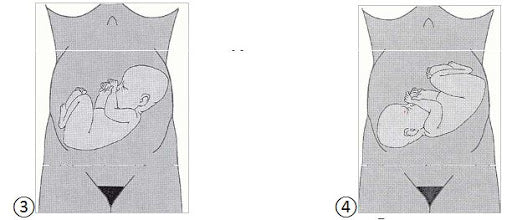
Literature depicts women as princesses, muses of subtlety, ethereal, gentle, always elegant beings. Real life is much more difficult. Women also have our flaws and ills. Some more serious than others, some more hidden than others. Like snoring.
A secret that women traditionally keep under many locks, a problem that is not discussed and there is no lack of statistics, among other things, because the doctor sees it when snoring exceeds light decibels (it's easy to record them on your mobile with Snore Lab or Stop Snoring, which even includes an alarm that wakes you up if the snoring sounds more like motorcycle exhaust than a light breath ) or when, directly, the couple give an ultimatum.
According to the British Snoring Association in the UK alone, 4,5 million women snore (compared to 10,4 million men). In other words, 43,26 of admitted snorers are women. From the Jimenez Diaz Unit's Dream Foundation provide more details: "Although there is no clear criterion to define their intensity and frequency, it is considered that almost half of the adult male population and a quarter of women snore”. If the figures are already destroying the myth of female princesses with sweet dreams, with the menopause the percentage of women who snore increases"
Because the fat begins to accumulate at the base of the palate and this hinders the passage of air,” explains Dr. Ana Machado, otolaryngologist at the University Hospital Quirón Madrid. “In the case of young women, it is usually related to weight gain or a mandibular alteration known as retrognathia, which occurs when the lower prosthesis is aligned behind the upper prosthesis." Smoking, alcohol or sleep inducers can also add decibels to the normal airflow in the upper respiratory tract.Everyone snores sometimes, especially with nasal congestion from a cold or allergy.If it is transient, there is no there is no reason to be alarmed. If it is chronic and of a disturbing volume, it is better to remedy it.
The solitary snorer can be snorer all his life without major headaches because, except in certain cases, it does not usually lead to significant health problems. But summer is the time for campsites, weekends at country houses with friends or, why not, romantic one-night stands with a handsome prince who can't imagine his sweet new princess can be than a tender Fiona falling into the arms of Morpheus.

After an exciting night of love, the sonic surprises arrive. If there have been a few extra drinks, shouting and laughing at high volumes, snoring may be the inevitable outcome. Being a woman, knowing that you snore and having youth generates stress, when this is not anxiety. The woman comes to the consultation worried, almost modestly. Suppose you have a problem and you want a solution. Men take it more jokingly. They usually come to the consultation with their wives without anxiety.
Snoring does not kill but is a disease, but it is a social problem that afflicts the snorer. Much more when it comes to a woman. "In sleep units, we consider snoring serious when it interferes with family reconciliation, that is, interferes with the rest of those who live with them." In addition, it can sometimes be accompanied by other sleep dysfunctions such as apnea which presents a health risk. “This is the case of people who wake up suddenly with the onset of asphyxia. There are patients who even go to the cardiologist alarmed thinking they have had a heart attack when in reality their problem is respiratory. Receiving less oxygen in the brain at night leads to daytime fatigue, drowsiness, lack of concentration. There are even patients who define it as "if they woke up with a hangover". At other times, it can cause depression.
Once they've opened up their heart and airways to the otolaryngologist or sleep unit specialist, the question is immediate, "Doctor, is there a cure? ". The answer is yes. "Snoring is caused by a collapse of the airways due to a increase in the thickness of the base of the tongue, a lack of muscle tone in the muscles of the mouth and throat or other anatomical alterations of the mandibular angles, due to, for example, a bad arrangement of the jaw bones or an excessive size of the bell”.
The first thing to do is therefore to check where the problem lies and, if necessary, to refer the patient to the specialist indicated, generally the maxillofacial surgeon or the pulmonologist. “If the problem is due to the excessive size of the tonsils, we can proceed with their removal,” Machado lists. "If it bothers the palate or the base of the tongue, there is a minimally invasive surgery with bipolar radiofrequency. It is performed on an outpatient basis, under local anesthesia and the intervention lasts only half an hour. "When the problem is maxillofacial, it is then necessary to resort to a more invasive surgery.
What about nose strips, sewing a tennis ball to your pajamas to keep you from sleeping on your back, and other inventions to reduce snoring? “They're usually not very effective if it's a serious problem. In the event that the trigger for snoring lies in the nose, the pulmonologist can opt for a C-PAP (Continuous Positive Nasal Airway Pressure): a device with a mask placed on the nose and it supplies air under continuous pressure in order to avoid the collapse of the airways. It is used in cases of apnea and usually solves the problem in about 90% of cases.
But since the idea of walking through the operating room isn't appealing, let alone sleeping with an air mask on, inventions, patents, and even home remedies proliferate. A study published in the British Medical Journal points out that playing the didgeridoo (a rudimentary instrument of the Australian Aborigines) or, failing that, certain wind instruments, strengthens the airways and reduces the impact of snoring. Note: It is valid for men, but women should take it with caution as it relaxes the pelvic floor muscles.


























